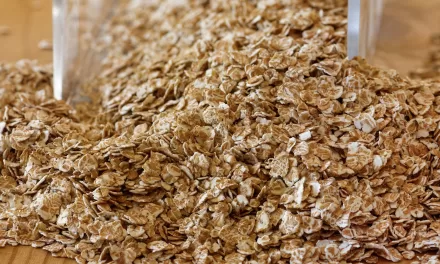In the quest for a full night’s rest, new parents are often willing to try anything to help their baby sleep longer. A recent TikTok trend suggests that feeding babies a tablespoon or two of butter before bedtime can promote longer sleep. However, experts warn that this claim is unfounded and could pose risks to infants.
Understanding Baby Sleep
Babies require assistance to fall asleep, whether through feeding, rocking, or touch. Newborns also lack an established circadian rhythm, meaning they do not distinguish between night and day. While melatonin present in breast milk can aid in nighttime sleep, bottle-fed babies do not receive this hormonal benefit. Nonetheless, all babies eventually develop sleep patterns with longer nighttime stretches as they grow.
Infants also experience lighter sleep cycles compared to adults. This lighter sleep plays a crucial role in preventing sudden infant death syndrome (SIDS), as it helps babies wake easily when necessary. The expectation that babies should sleep deeply and for long periods is often unrealistic and may place undue pressure on parents.
The Risks of Feeding Butter to Babies
Social media trends can sometimes encourage parents to adopt practices that are not backed by science. Experts strongly advise against giving solid foods, including butter, to babies younger than six months, as their digestive systems are not yet developed to process such foods. Prematurely introducing solids can lead to digestive issues, including constipation, and may increase the risk of illness.
Even beyond six months, butter is not a recommended sleep aid. It is composed almost entirely of saturated fats and lacks essential nutrients that growing infants require. Replacing more nutritious foods with butter could deprive babies of key vitamins and minerals.
The Science Behind Infant Sleep and Diet
This TikTok trend is only the latest in a long line of myths regarding food and baby sleep. Past beliefs suggested that adding cereal or crushed biscuits to a bottle before bed would help babies sleep longer—research has debunked this idea. Similarly, there is no scientific evidence to support the claim that feeding butter before bedtime improves infant sleep.
Studies consistently show that diet has little to no impact on night waking in infants. Sleep patterns are largely developmental and change as babies grow.
What Can Parents Do Instead?
If an infant wakes frequently during the night, hunger is not always the cause. Parents should check for other factors, such as room temperature, diaper needs, or general discomfort.
While some parents turn to behavioral sleep interventions, commonly known as “sleep training,” research indicates that such methods yield minimal improvements. One study found that sleep training increased the longest sleep stretch by only 16 minutes, with no reduction in the number of night wakings. Sleep training is particularly discouraged for babies under six months.
Taking Care of Yourself
Parental exhaustion is real, and self-care is crucial. Parents should try to rest when their baby sleeps and seek support from friends or family to manage household tasks. If an infant’s sleep pattern changes significantly, or if they show signs of pain or illness, consulting a doctor or a child health professional is advised.
For those struggling with infant sleep concerns, organizations such as the Australian Breastfeeding Association, UNICEF, and the Baby Sleep Info Source (Basis) provide evidence-based resources and support.
Disclaimer:
This article is for informational purposes only and does not constitute medical advice. Parents should consult a healthcare professional for concerns regarding their baby’s sleep or nutrition.












